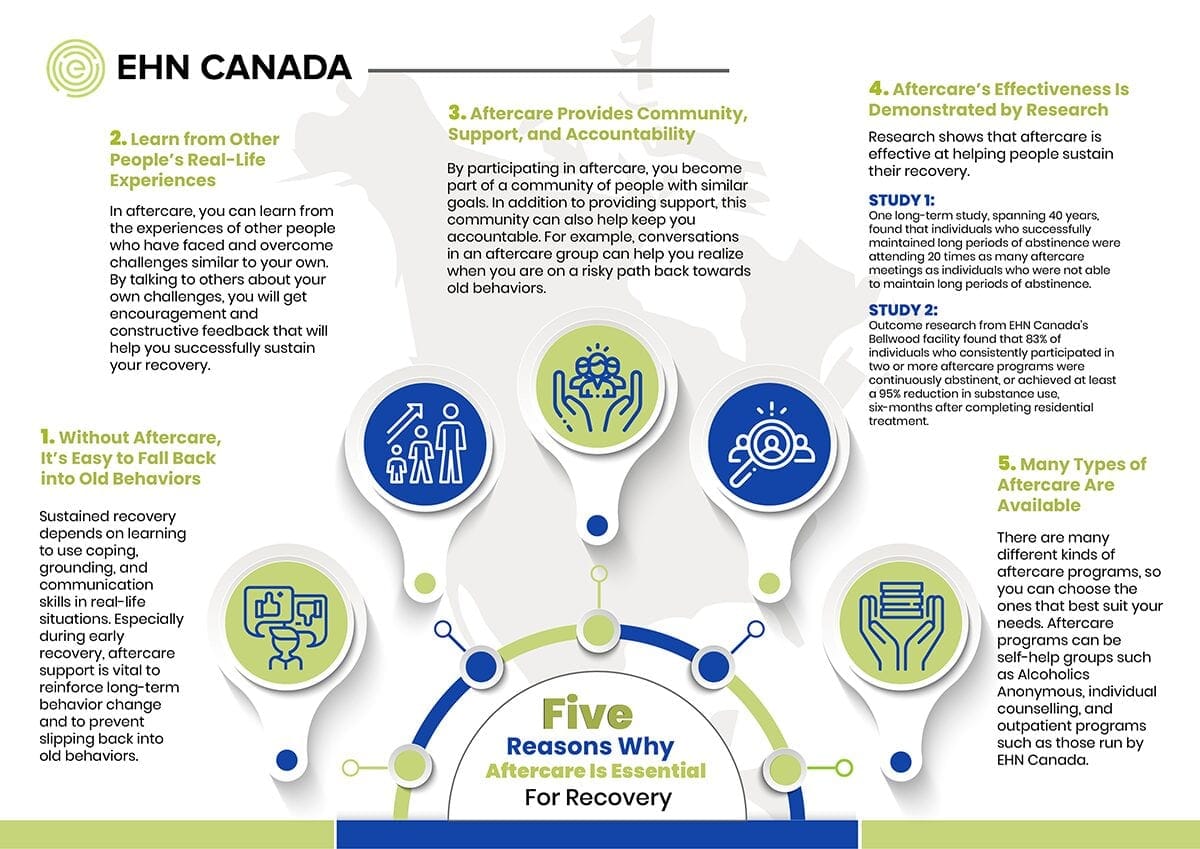Addiction and substance abuse can have devastating consequences for people’s lives. People often get fired from their jobs, have serious conflicts with their families and friends, and lose control of their finances.
Problems with substance abuse often escalate when abusing a substance becomes a person’s primary way of coping with life’s difficulties and challenges. This can easily become a vicious cycle that develops into active addiction: substance abuse creates more problems in a person’s life and, in turn, the problems cause stress and trigger the person to use substances more often. People with active addiction may often require professional help to achieve recovery, through a residential alcohol or drug addiction treatment program.
Residential treatment programs offer healthy and supportive environments for people to begin repairing the damage caused by addiction and substance abuse. Since people are very vulnerable at this stage, residential treatment provides patients with a safe cocoon where they can focus on healing and recovery. It shelters and keeps them safe from the triggering situations in normal daily life that would likely cause relapse. Patients are taught constructive coping skills, relapse prevention strategies, and grounding techniques. During their treatment programs, patients practice using these tools to become more proficient with them, preparing themselves for the lives to which they will return when they complete treatment.
Residential treatment gives patients the knowledge, skills, and habits to get out of active addiction and into recovery. When patients complete residential treatment and return to their normal lives in the real world, the hard work of sustaining their recovery begins. Especially for people newly in recovery, sustaining one’s recovery can be very challenging due to the stresses and triggering situations of normal daily life. This is why active participation in aftercare programs is incredibly important. Aftercare programs provide you with uniquely valuable support for maintaining your recovery that you can’t easily find anywhere else. The following are five reasons why participating in aftercare programs is essential for successfully sustaining your recovery.
1. It’s Easy to Fall Back into Old Behaviors
While residential treatment is a first step for starting your recovery, sustained recovery depends on your effective use of coping, grounding, and communication skills in real-life situations. Without real-life experience practicing the use of these newly acquired tools, you can easily slip into old behavior patterns and relapse. Thus, early recovery is a transition period during which aftercare support is vital to reinforce long-term behavior change. Participating in aftercare is an active way that you can build on the foundation of the recovery skills that you developed during residential treatment.
2. Learning from Other People’s Real-Life Experiences
Participating in aftercare allows people to talk about how they use their active coping skills in real-life situations. You will receive encouragement regarding areas in which you are doing well and constructive feedback regarding how you can improve your skills in areas in which you are having trouble. You can also a lot learn by listening to, and sharing with, people whose experiences are similar to your own. If you are newly in recovery, you can learn from people who have faced and overcome very similar challenges to the ones you are currently facing. If you have been in recovery for a while, you can pass on your knowledge to others who are newer and less experienced. This process benefits the people who are sharing as much as it benefits the people who are listening and learning—sharing one’s knowledge and experiences reinforces one’s commitment to recovery and a healthy life.
3. Aftercare Provides Community, Support, and Accountability
When you participate in aftercare, you become part of a community of people with similar goals. This community of peers is useful both for providing support and also for keeping you accountable. For example, conversations in an aftercare group may help you realize when you are on a risky path that could lead you back to old behaviours—something that you are less likely to realize on your own.
4. Aftercare’s Effectiveness Is Demonstrated by Research
Research shows that aftercare is effective at helping people sustain their recovery. Studies have found that regular aftercare participation after completing treatment is one of the best predictors of sustained recovery. One long-term study, spanning 40 years, found that individuals who successfully maintained long periods of abstinence were attending 20 times as many aftercare meetings as individuals who were not able to maintain long periods of abstinence. Outcome research from EHN Canada’s Bellwood facility found that 83% of individuals who consistently participated in two or more aftercare programs were continuously abstinent, or achieved at least a 95% reduction in substance use, six-months after completing residential treatment.
5. Many Aftercare Options Are Available—Including Online Aftercare
There are many different kinds of aftercare programs, so you can choose the ones that best suit your needs. Aftercare programs can be self-help groups such as Alcoholics Anonymous, individual counselling, or outpatient programs such as those run by EHN Canada. You can easily find groups that meet during the day, evening, or weekends, as best fits your own schedule. There are a growing number of online aftercare options including EHN Canada’s Wagon online outpatient clinic.

EHN Canada Aftercare Programs
To learn more about our aftercare programs, please call us at one of the numbers below.
- 1-800-387-6198 for Bellwood Health Services in Toronto, ON
- 1-587-350-6818 for EHN Sandstone, in Calgary, AB
- 1-800-683-0111 for Edgewood Treatment Centre in Nanaimo, BC
- 1-888-488-2611 for Clinique Nouveau Depart in Montreal, QC
Online Aftercare with EHN Online
To learn more about getting aftercare online visit our EHN Online page.



